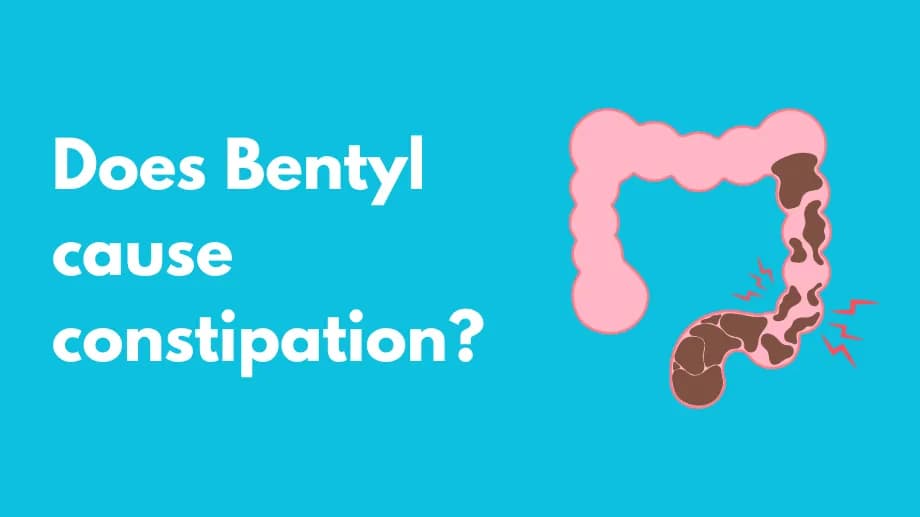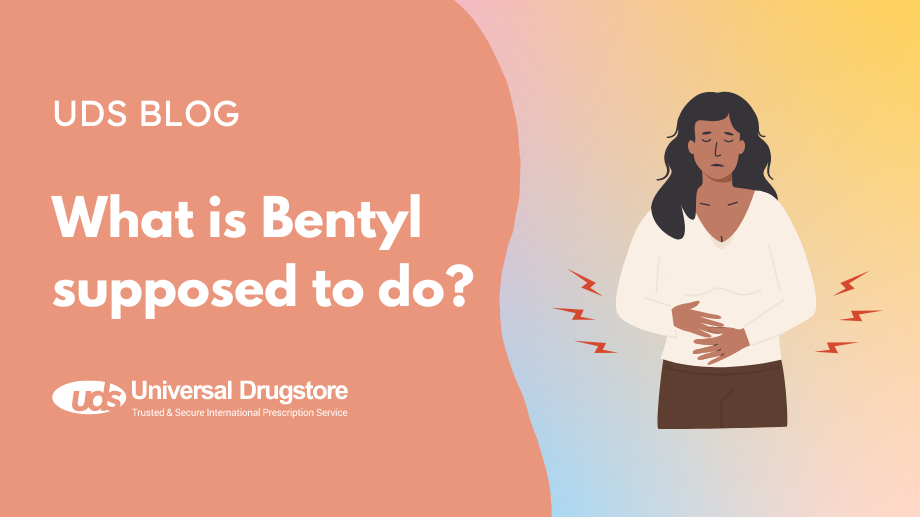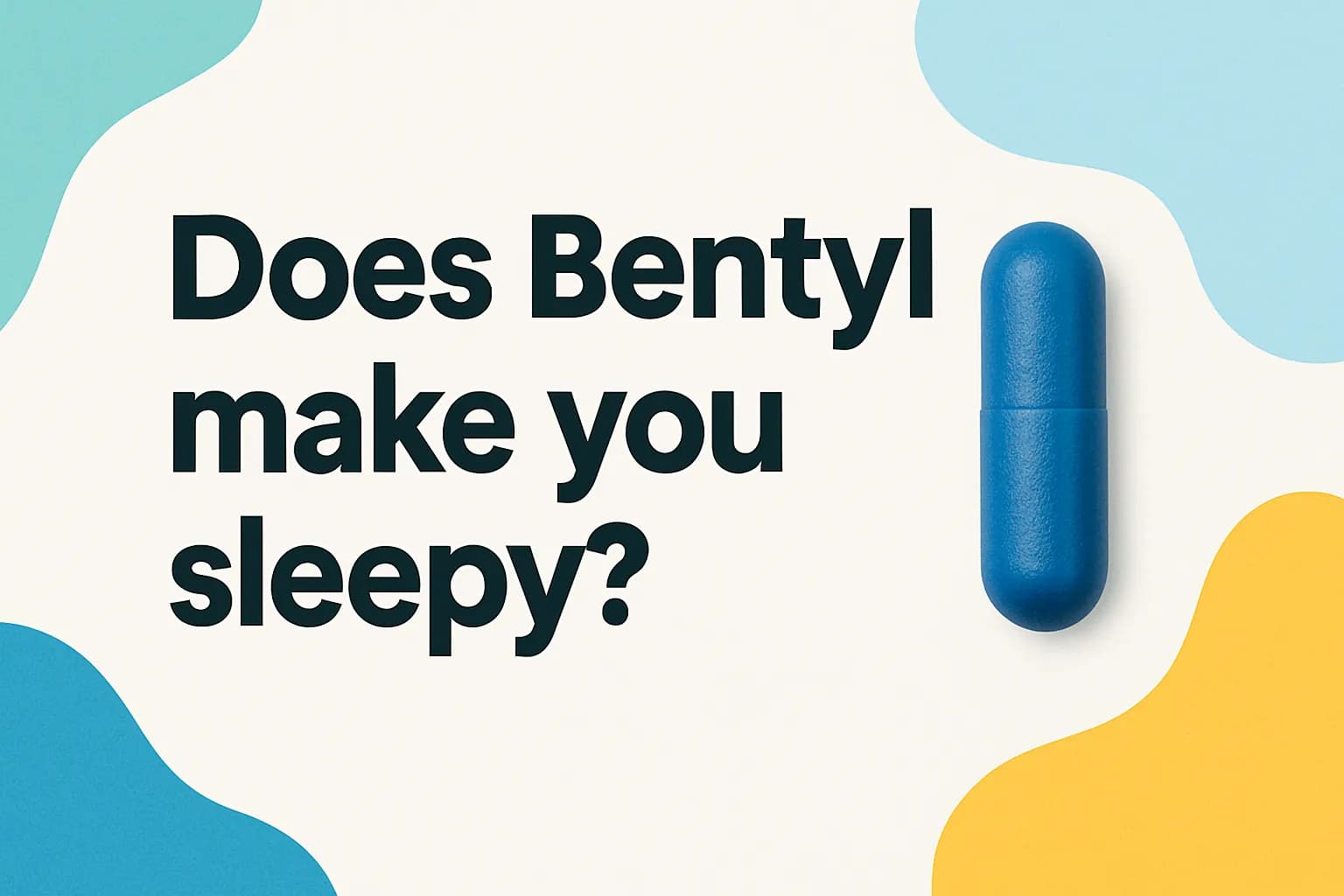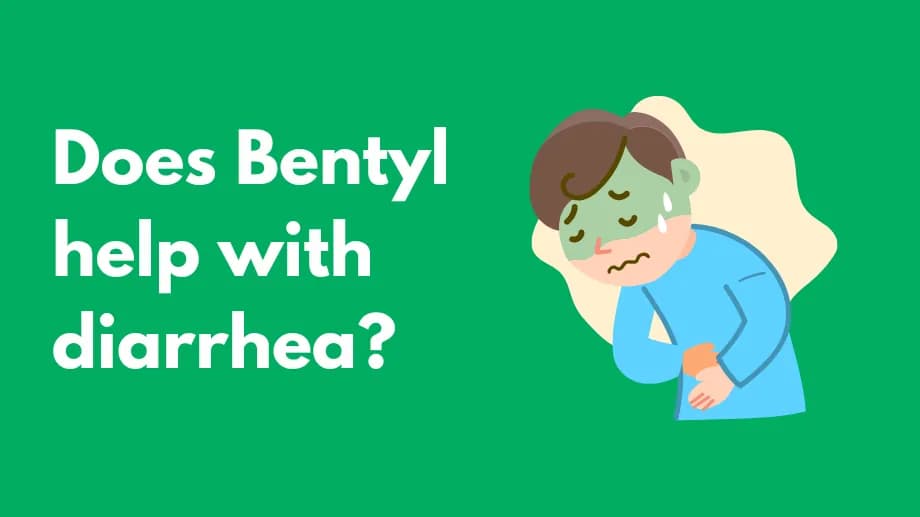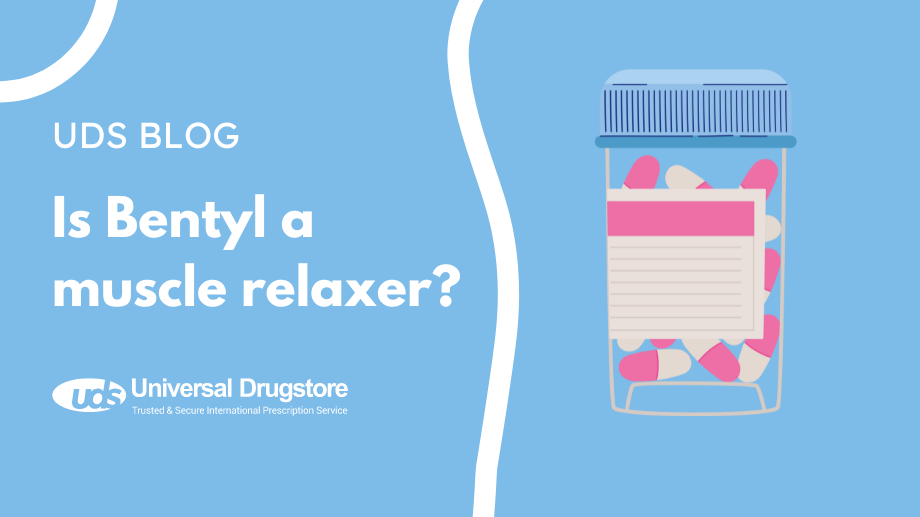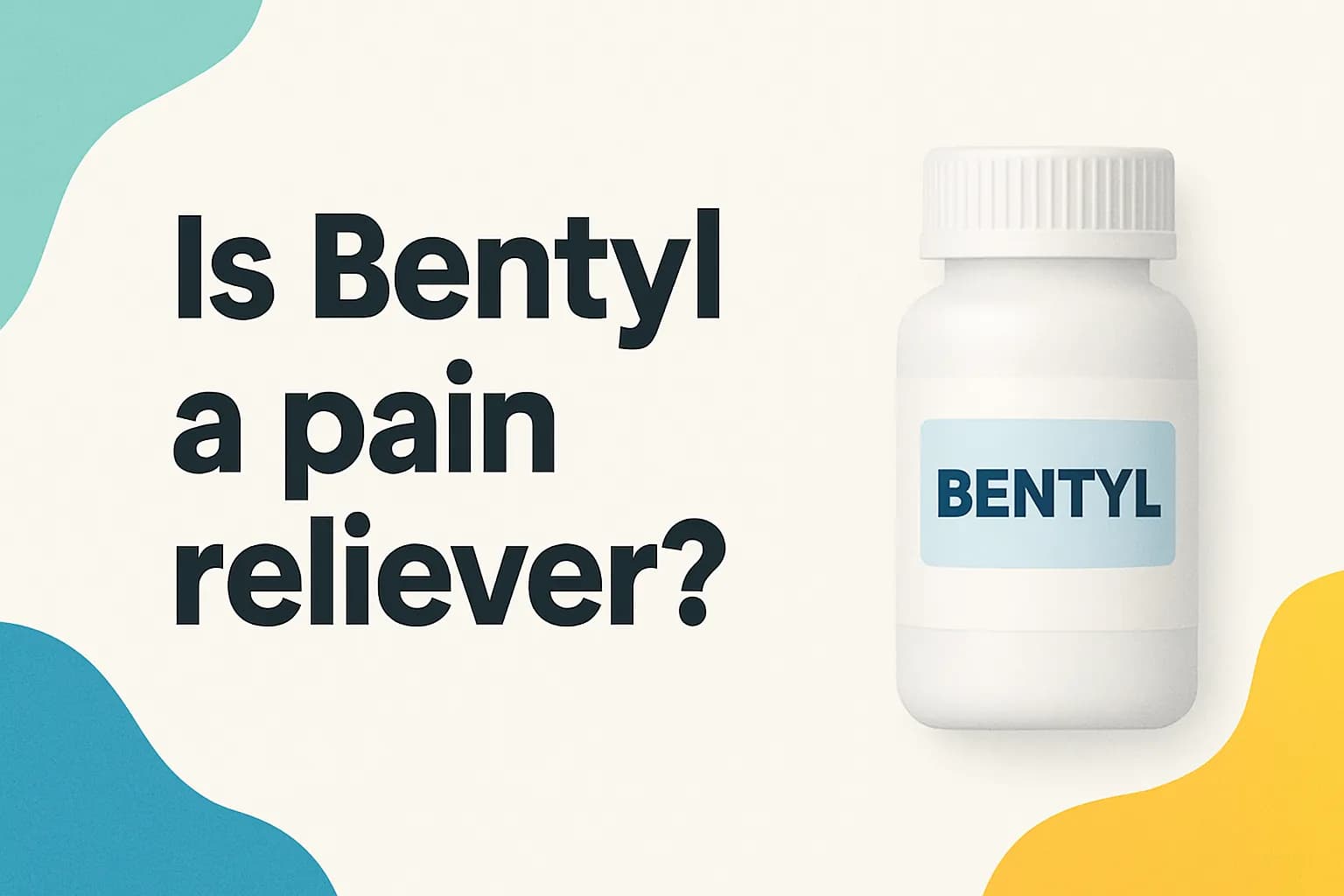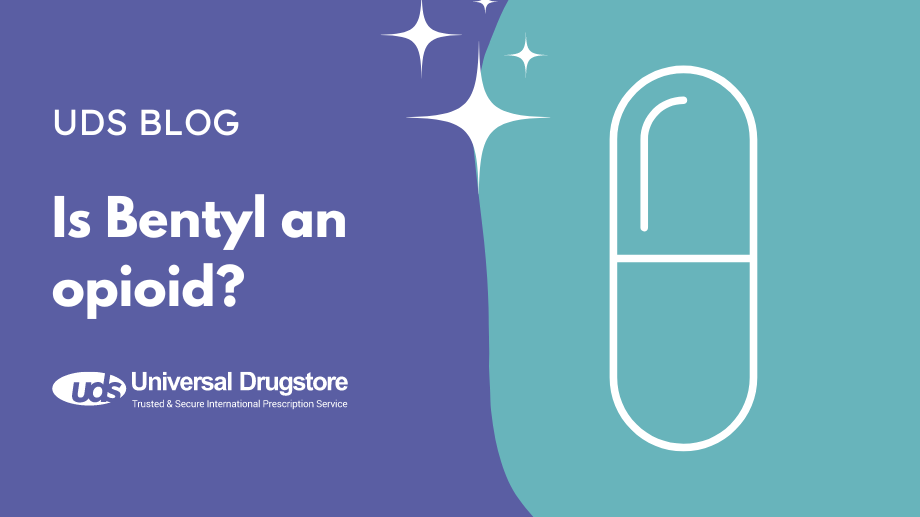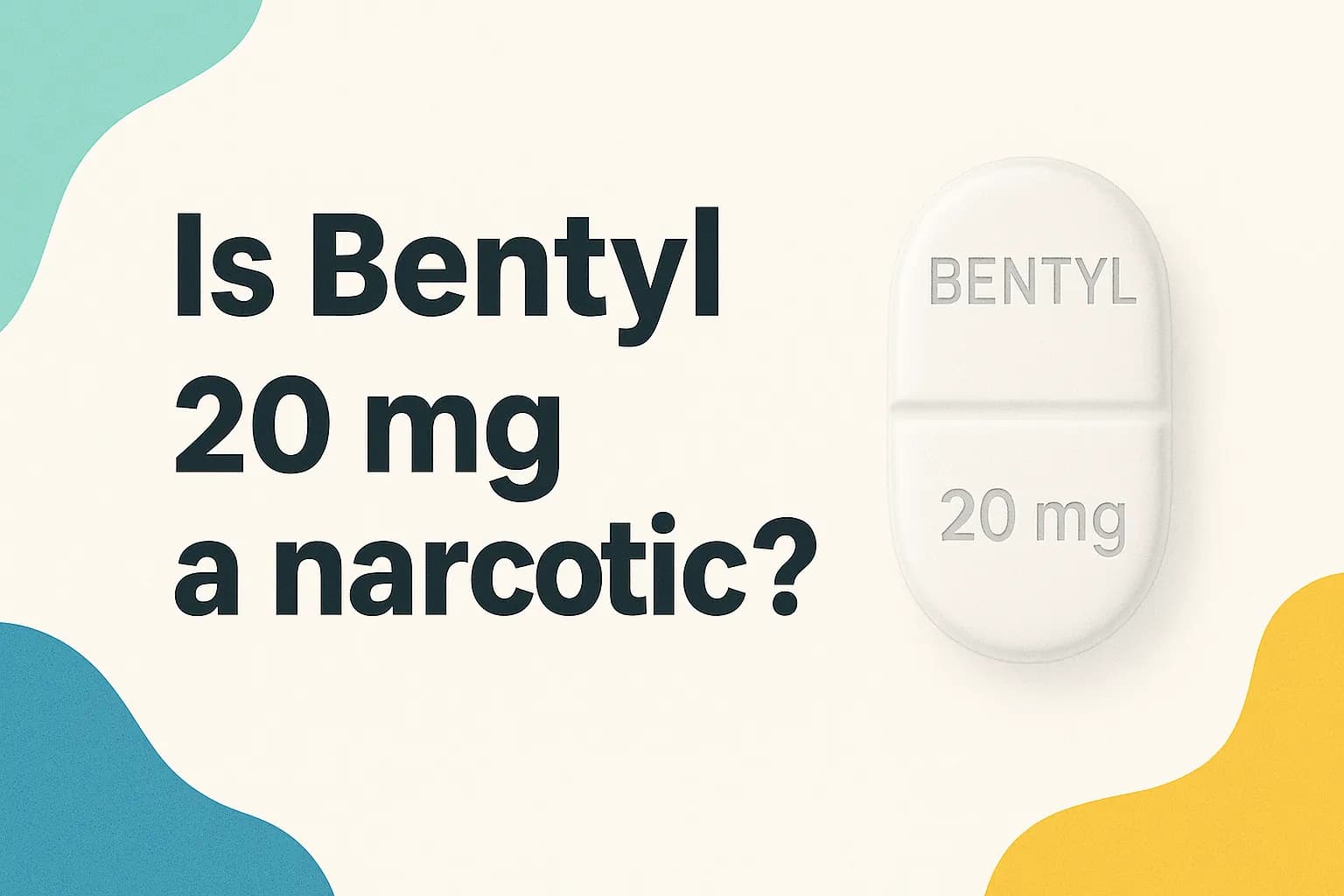Is Bentyl an opioid?
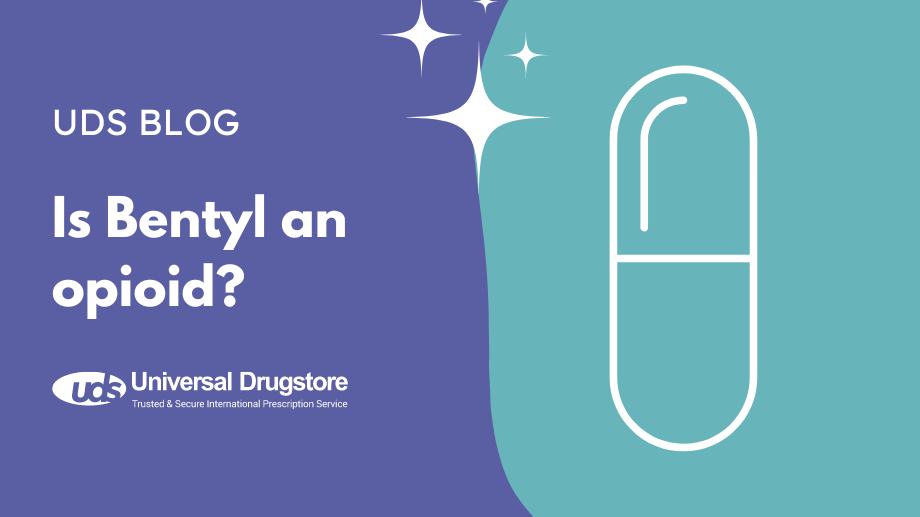
No, Bentyl (dicyclomine hydrochloride) is not related to any opioids such as Oxycontin (oxycodone), Norco (hydrocodone/acetaminophen), Duragesic (fentanyl), Roxanol (morphine), or Dilaudid (hydromorphone).
Opioids which are also called opiates, painkillers, or narcotics work similarly to each other. They activate an area of nerve cells called opioid receptors that block pain signals between your brain and body. They can be highly addictive and are typically used for short-term pain relief.
Bentyl is an antispasmodic or anticholinergic drug that is used to treat symptoms of irritable bowel syndrome (IBS). Other names for IBS are spastic colon or functional bowel disease. Bentyl works by blocking the actions of the neurotransmitter acetylcholine. Acetylcholine binds to receptors on the smooth muscles in your gastrointestinal tract and signals for them to contract. By reducing the action of this neurotransmitter, Bentyl helps the muscles in your stomach and intestines relax. It also decreases gastric secretions and the movement (motility) of your gastrointestinal tract. This helps relieve IBS symptoms such as abdominal pain, muscle spasms, abdominal cramps, diarrhea, and bloating. It is taken long-term and typically not addicting if taken as it is prescribed.
What are the side effects of dicyclomine?
The most common side effects of Bentyl include:
- Dizziness or lightheadedness
- Dry mouth
- Blurred vision
- Nausea
Some other less serious side effects of Bentyl that may occur include:
- Drowsiness or sedation
- Weakness
- Nervousness
- Constipation
Some people can experience serious side effects while using Bentyl that may require immediate medical attention. If you experience any of the following, contact your healthcare provider or seek assistance at your nearest hospital:
- Serious allergic reactions
- Increased heart rate
- Mood changes
- Decreased sweating or other autonomic nervous system effects
- Severe muscle weakness
- Trouble urinating
- Gut problems
Does Bentyl interact with other medications?
When Bentyl is taken with other brand name or generic prescription drugs, over-the-counter medications, vitamins, and supplements, it may change how they work or increase the frequency or severity of side effects. Make sure that you tell your healthcare provider about any medications that you are taking so they can check for any drug interactions, including:
- Antacids
- Other anticholinergic drugs, including atropine and glycopyrrolate
- Antiarrhythmic medications like Pacerone (amiodarone)
- Antidepressants such as tricyclic antidepressants and monoamine oxidase inhibitors (MAOIs)
- Benzodiazepines like Valium (diazepam)
- Antipsychotics like Compazine (prochlorperazine)
- Corticosteroids like prednisone
- Drugs that also affect how fast your stomach empties (such as metoclopramide)
- Glaucoma drugs like Vyzulta (latanoprostene)
- Gocovri (amantadine)
- Antihistamines such as diphenhydramine or doxylamine
What should your healthcare provider know before starting Bentyl?
Tell your healthcare provider if you have or have ever had glaucoma, ulcerative colitis, an enlarged prostate, difficulty urinating, high blood pressure, esophageal reflux, a GI blockage, myasthenia gravis, an overactive thyroid gland, nerve diseases, hiatal hernia, heart failure, rapid heartbeat, or liver, kidney, or heart disease. You should not take Bentyl if you are breastfeeding as it is found in breast milk and may harm your infant. You must either stop breastfeeding or stop Bentyl as a precaution.
Is Bentyl addictive?
It is very rare for you to become addicted to Bentyl, but some studies have shown that you may grow physically dependent on it. This typically only occurs if you overuse Bentyl, during which your body becomes accustomed to the medication and reacts badly if suddenly stopped. Be sure to use this medication exactly as prescribed by your healthcare provider.
How can you treat IBS naturally?
The symptoms of IBS such as stomach pain, diarrhea, bloating, and constipation can be uncomfortable. There are lifestyle changes and home remedies that you can try that may provide relief:
- Eat a low FODMAP diet
- Exercise
- Lower your stress
- Increase your fiber intake
- Probiotics
- Other supplements such as peppermint oil, ginger, slippery elm, and magnesium
